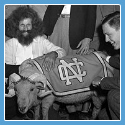|
WoodrowSkillson posted:http://en.wikipedia.org/wiki/Barrett_M82 I do wonder what the anti-materiel rifle really is. It's not an M82 but it's not KSVK either. They seem to be common with Kurdish snipers but not elsewhere, could it be a domestic product?  It seems bolt-action, that doesn't leave many options. Nenonen fucked around with this message at 20:06 on Aug 23, 2014 |
|
|
|

|
| # ? Jun 9, 2024 19:39 |
|
Volkerball posted:While one day ISIS might be strong enough to rule against the will of all Sunni's in the north (a day that might have already passed), right now they are clearly getting popular support. Whether it be a common goal of pushing Shia's and Kurds out, pushing out the Iraqi Army, or ethnic cleansing, ISIS has the influence to be the face of Sunni's in Iraq, and that's accepted. You can't invade and "hearts and minds" that away, or draw arbitrary borders around them and expect that to contain them. It seems the only thing that can stop Sunni aggression at this point is the overthrow of the government, and that could easily just tip the pendulum the other way and get Shia's up in arms behind the death squads. farraday posted:When you're talking about partitioning the country based on blood or religion you are, in fact, prizing those qualities and making them even more important in the future, not diminishing them. farraday posted:Because there are not three ethno-religious groups in Iraq meaning you'd have minority groups left and highly subject to oppression when you've created a national identity they are not part of. Nor does partition remove the ethno-religiosu tension. even now the third largest Muslim county in the world is India. Tell me do you feel the history of India since partition has evinced a lack of tension based on religion? Demographic growth of the Muslim population relative to the Hindu population means partition, making them sit on separate sides of the bench, is now more a pipe dream then at any time since partition. farraday posted:Nor can the obvious resource disparity be comfortably ignored as the sides of the bench to which you might separate them are not equal. finally the envisioned states do not represent natural borders of the ethno-religious groups suggested as primary nation-states. Even if you could somehow come to an agreement internal to Iraq, you are creating a situation where irredentism is not only likely it's almost a necessity.
|
|
|
|
A Buttery Pastry posted:What I'm talking about would be directly undermining this reason to support ISIS, by getting rid of the Iraqi Army, as well as the Shias and the Kurds (in the relevant areas). Admittedly the US would be the country actually having to carry out this plan, so there's still some tension there, but on the face of it US involvement seems less important than what specifically the US is doing. Unless we assume the Sunnis are nearly unanimous in their desire to either subjugate the Shias, or to ethnically cleanse them from any territory in which Sunnis live, at which point a united Iraq once more seems a complete impossibility. Well they're supporting loving ISIS, so. Also have not heard of one Sunni group fighting alongside the Kurds and Shia militias against ISIS despite there being hundreds of thousands of fighting age Iraqi Sunni's with experience.
|
|
|
|
Volkerball posted:Well they're supporting loving ISIS, so. Also have not heard of one Sunni group fighting alongside the Kurds and Shia militias against ISIS despite there being hundreds of thousands of fighting age Iraqi Sunni's with experience.
|
|
|
|
https://www.youtube.com/watch?v=u5m2S_wXVh0 https://www.youtube.com/watch?v=u5m2S_wXVh0 Kurds are really bad at youtube. https://www.youtube.com/watch?v=v9P6jzOeKNc Pop music takes a strange turn when there is literally a war going on.   http://www.liveleak.com/view?i=185_1408804575   YPG ambushed by IS. I guess the women fighters die  https://www.youtube.com/watch?v=7wEGnA3ec1M Listed as a night skirmish between ISIS and peshmerga, it is very blurry so it is hard to see what it actually shows. maybe connected to this video: https://www.youtube.com/watch?v=7R4A5b1qzCk I cannot imagine that they are doing much besides wasting bullets.  https://www.youtube.com/watch?v=MDYIQJy4JJI  Kurds video taping bodies somewhere, but there are stills that appear to show them executing IS fighters. I think it is related to the mosul dam fight. Edit: https://www.youtube.com/watch?v=ouHFxaC5jkA IED attack on peshmerga. Torpor fucked around with this message at 20:53 on Aug 23, 2014 |
|
|
|
A Buttery Pastry posted:I'm only advocating it because there's so much bad blood in this conflict that I have a hard time imagining things getting better without first separating these people from each other. Giving these people their own states which they feel represents them allows them to move on, even if it will take decades, creating a foundation for future interaction not based on hatred and fear. Like whatever7 said, confidence in your position allows you to be more relaxed in your relation to minorities, and the current perpetual civil war Iraq is hardly the environment to build such confidence in. Cite examples otherwise all this is is your ideology in the place of argument. Should we start closest to home? What is the minority experience in America under the confidence of position of the white power structure? no, maybe Australia then. Minority groups in France? Where does this optimism spring from exactly? Somewhere closer? Turkey perhaps? You don't create pluralism by privileging ethnic identity. quote:Demographic growth of Muslims relative to the Hindu population, to the point it's actual an issue, implies there were still plenty of Muslims in India after the partition, doesn't it? How big are the groups not represented by Kurdistan, Shia Iraq, and Sunni Iraq? Are they seen as threats in the same way a Sunni Iraqi might view a Shia Iraqi? Just fyi the only way to read this is that ethnic cleansing wasn't thorough enough. That if the remnant populations are small enough issues will vanish. The Tamil make up l5% of Sri Lanka. Muslims made up roughly 10% of post partition/cleansing India. Given that Kurds make up about 20% of the population of Iraq and Tukrmen's another 5%, if we were to create a nation from those population groups the turkmen would constitute somewhere between 10 and 20% of the resulting country. Is the problem then that there are too many Turkmen inside Kurdistan? Do we ignored the threat of "kurdification" a term I assure you I did not make up simply because we want to view the Kurds as a model minority? quote:Irredentism should subside over time, if the ethnic borders are made to match the new state borders. Not immediately of course, and some people will continue to fantasize about their rightful claims, but not having any of your brethren in the territory in question is going to diminish the power of irredentism, and make attempts at conquering it much harder. It's not even like significant tension and desire to take territory has to mean open conflict either, it might just be limited to significant tension and very little diplomatic contact, which would still be a big step up from the status quo. I want to point out that this phrasing is specifically demanding again that the populations living in a region be made to match the borders, which is literally a call for ethnic cleansing. farraday fucked around with this message at 20:54 on Aug 23, 2014 |
|
|
|
That alleged ansar al sunnah bombing video would be a new action for a group that hasn't done anything in a few years. http://en.wikipedia.org/wiki/Jamaat_Ansar_al-Sunna Edit: a quick google search shows them being mentioned only since about august of this year. Torpor fucked around with this message at 20:58 on Aug 23, 2014 |
|
|
|
A Buttery Pastry posted:Because things are so hosed-up in Iraq that supporting ISIS might actually be in the best interests of the Sunnis, at least in the short term? Obviously. It'd be in the best interest of liberals in the US to have marauding gangs running through the country massacring conservatives by the hundreds as well. If your interests align with ISIS' interests, your interests are morally bankrupt.
|
|
|
|
"Man I'm tired of hearing about the Iraqi government and Shia militias persecuting Sunnis. The obvious solution is to let the Iraqi government and Shia militias relocate or murder the Sunnis."
|
|
|
|
Torpor posted:https://www.youtube.com/watch?v=7wEGnA3ec1M
|
|
|
|
farraday posted:Is the problem then that there are too many Turkmen inside Kurdistan? Do we ignored the threat of "kurdification" a term I assure you I did not make up simply because we want to view the Kurds as a model minority? farraday posted:I want to point out that this phrasing is specifically demanding again that the populations living in a region be made to match the borders, which is literally a call for ethnic cleansing. Volkerball posted:If your interests align with ISIS' interests, your interests are morally bankrupt.
|
|
|
|
 Anyone know what symbol that is? from this video: http://www.liveleak.com/view?i=2ae_1408793955 They seem very well armed. Edit: a second view: 
Torpor fucked around with this message at 21:50 on Aug 23, 2014 |
|
|
|
Volkerball posted:Also gives you more leeway to miss. You can miss by a foot with a .50 and still rip someone in half. Not even remotely close to physically possible. You've probably read that fake story about the shockwave from a .50 cal bullet can mess people up. I've had to clarify this with several people so don't feel too bad. If your bullet misses, it just misses. You still have to hit the target to kill it.
|
|
|
|
A Buttery Pastry posted:Yes? I have not made any attempts at all to hide the fact that my solution requires population transfers. As I see it, the alternative is the civil war continuing forever, genocidal ethnic cleansing included. Population transfers in this case would essentially be a proactive refuge program, trying to solve the problem at the source instead of just helping the people who manage to escape. (Or just keeping them in refugee camps forever.) I just want it clear to everyone you are literally advocating for a crime against humanity.
|
|
|
|
Torpor posted:
Parastin. They're the intelligence branch of the KRG connected to the Asayish. I've only seen those kicking rad black jeeps driven by the Eastern branch who are strongly PUK affiliated and got armed to the teeth to fight Ansar al-Islam.   edit: Specifically I think they're used by Dija Terror (DT) which is an Anti-Terrorism task force within the Parastin commanded by Lahur Talabani, Jalal Talabani's nephew. kustomkarkommando fucked around with this message at 21:58 on Aug 23, 2014 |
|
|
|
Volkerball posted:Also gives you more leeway to miss. You can miss by a foot with a .50 and still rip someone in half. I didn't know that. Is that because of the shockwave or something? Edit: ah thanks Sergg.
|
|
|
|
Has there ever been a mass population transfer that didn't kill massive numbers of people in modern history?
|
|
|
|
A Buttery Pastry posted:ISIS' interests include opposing the Iraqi government and Shia militias. That's hardly a morally bankrupt interest when one treats Sunnis as second-class citizens, and the other tries to exterminate them. If ISIS provides the needed strength for those interests, then what choice do the Sunnis have? Should they just lie down and take it? Supporting a group like ISIS doesn't come from a position of strength. They absolutely are in a position of strength. I'd bet ISI killed more sahwa fighters and other sunni's they branded traitors than shia's have killed sunni's since 2008. Thousands have died in shia territory over the last year. The bombings are nonstop. Why do you think the Iraqi Army was so quick to give up in Mosul? It's because they were tired of getting blown up every day for years on end. Yeah, the Maliki government was certainly biased against sunni's, and there's definitely been operations by death squads aimed at indiscriminate slaughter, but in no way are they helpless, oppressed people who had to choose between ISIS or death. They are armed tribes in a region where everyone has a gun and everyone knows how to use it coming together and saying these ISIS guys are on the right track. That's hosed.
|
|
|
|
Sergg posted:Not even remotely close to physically possible. You've probably read that fake story about the shockwave from a .50 cal bullet can mess people up. I've had to clarify this with several people so don't feel too bad. If your bullet misses, it just misses. You still have to hit the target to kill it. I actually  saw the deflated face of a man who's skull was ripped out of his skin by a .50 bullet passing over his head behind cover. Source? saw the deflated face of a man who's skull was ripped out of his skin by a .50 bullet passing over his head behind cover. Source?
Volkerball fucked around with this message at 22:04 on Aug 23, 2014 |
|
|
|
Volkerball posted:I actually saw the deflated face of a man who's skull was ripped out of his skin by a .50 bullet passing over his head behind cover. Source? That bullet either struck his head or it missed and something else did that to his head. Source: the Laws of Physics.
|
|
|
|
Volkerball posted:Source?
|
|
|
|
Rent-A-Cop posted:Basic physics? Even the Mythbusters have done this one by now
|
|
|
|
J33uk posted:Even the Mythbusters have done this one by now http://en.wikipedia.org/wiki/MythBusters_(2009_season)#Sonic_Boom_Sound-off Yerp, it doesn't even break windows, let alone rip a dude's skull out. Like I said Volckerball, old urban legend and you aren't the first person I've explained this to.
|
|
|
|
I thought he was just joking that the round is so big it would still hit someone if you missed, the idea of deadly bullet drift fields killing people is pretty borderlands.
|
|
|
|
Sergg posted:That bullet either struck his head or it missed and something else did that to his head. Source: the Laws of Physics. His face was intact right up to the hairline. It might have just clipped him, but I'd assume a bullet the size of my hand traveling 2/3 of a mile a second can do some strange things.
|
|
|
|
New video from IS showing the capture of Brigade 93 (I think) in Syria Kinda  in the last third https://www.youtube.com/watch?v=igWc_aZHJQ8 in the last third https://www.youtube.com/watch?v=igWc_aZHJQ8
|
|
|
|
Volkerball posted:His face was intact right up to the hairline. It might have just clipped him, but I'd assume a bullet the size of my hand traveling 2/3 of a mile a second can do some strange things. I dare you to post this in GiP. You will be laughed at. Radio Prune posted:New video from IS showing the capture of Brigade 93 (I think) in Syria That is actually some amazing cinematography! Finally some Iraqi was able to make use of his degree in Film and Video Productions.
|
|
|
|
Sergg posted:http://en.wikipedia.org/wiki/MythBusters_(2009_season)#Sonic_Boom_Sound-off Huh. Hadn't seen that one. M2 has a higher muzzle velocity than the sniper, but not enough to make that much of a difference.
|
|
|
|
Volkerball posted:a bullet the size of my hand huh?
|
|
|
|
Sergg posted:I dare you to post this in GiP. You will be laughed at. It was a pretty widely held belief in the infantry, but I do enjoy getting told things by pogs who don't even know how to time a .50. Not taking a stab at you, but gip always makes me laugh.
|
|
|
|
Radio Prune posted:huh? I was including the cartridge and also I have baby hands.  VVV Very true Volkerball fucked around with this message at 22:32 on Aug 23, 2014 |
|
|
|
Volkerball posted:It was a pretty widely held belief in the infantry
|
|
|
|
I found this an interesting readquote:Some jihadists or pro-jihadist Salafists have issued video clips and tweets explaining their lack of assistance to the Palestinians. One tweet stated, “The Hamas government is apostate, and what it is doing does not constitute jihad, but rather a defense of democracy [which Salafists oppose].” Another tweet said, “Khaled Meshaal: Hamas fights for the sake of freedom and independence. The Islamic State: it fights so that all religion can be for God.” Meshaal is head of Hamas' political bureau. Sunnis need to get their poo poo together. At least some Sunnis aren't barbarians and A lot of them are fighting the terrorists in Syria and Iraq even though the Sunni communities have been generally for genocide of minorities and shia.
|
|
|
|
Volkerball posted:They absolutely are in a position of strength. I'd bet ISI killed more sahwa fighters and other sunni's they branded traitors than shia's have killed sunni's since 2008. Thousands have died in shia territory over the last year. The bombings are nonstop. Why do you think the Iraqi Army was so quick to give up in Mosul? It's because they were tired of getting blown up every day for years on end. Yeah, the Maliki government was certainly biased against sunni's, and there's definitely been operations by death squads aimed at indiscriminate slaughter, but in no way are they helpless, oppressed people who had to choose between ISIS or death. They are armed tribes in a region where everyone has a gun and everyone knows how to use it coming together and saying these ISIS guys are on the right track. That's hosed. You seem very eager to cast entire ethnic groups and regions as a targets of collective punishment without any reflection on what the aftermath of that would be, either in Syria (were you seem be rooting for Sunnis to punish the Shia population and now vice-verse in Iraq). Trying to portray entire ethnic groups as comic-book villains has always been laughable but it is especially so in current-day Iraq. Collective punishment against the Sunnis means a collective punishment against a large civilian population, and I don't think any "sins" are enough to justify that.
|
|
|
|
One interesting fact about the Sunnis in Iraq is that there's apparently a widespread belief that they are in fact the demographic majority in the country, and that any government that does not reflect that fact is illegitimate. The Sunnis in Iraq definitely seem to harbor some delusional, harmful beliefs. But then again, you can say that about every group there. Even the Kurds ultimately only seem interested in the Iraqi community to the extent that they can siphon money out of the government in Baghdad and build up their proto-state. They certainly did very little when ISIS initially blitzed Mosul other than leap into Kirkuk, a disputed territory they wanted.
New Division fucked around with this message at 22:42 on Aug 23, 2014 |
|
|
|
Ardennes posted:You seem very eager to cast entire ethnic groups and regions as a targets of collective punishment without any reflection on what the aftermath of that would be, either in Syria (were you seem be rooting for Sunnis to punish the Shia population and now vice-verse in Iraq). Trying to portray entire ethnic groups as comic-book villains has always been laughable but it is especially so in current-day Iraq. I'm not portraying ethnic groups one way or the other. I'm referring to their leadership, and the tribal leaders and various other sunni power structures in Iraq that are clearly unanimously in favor of ISIS right now. That is not going to ease tensions with the shia, and it's not a step in the direction of an Iraqi government that is representative to sunni's and shia. I'm not "rooting" for the shia in Iraq. The difference is that moderate sunni's in Syria fight ISIS, and they speak of removing Assad and negotiating with the regime after that to create a government that works for everyone. In fact, the Syrians could sign up with ISIS, disband the FSA, and the opposition would be better for it from a military standpoint. A united opposition would probably go a long way towards taking Damascus. But they haven't resorted to that, despite facing infinitely more brutality than Iraqi sunni's. I can get behind that. I can't get behind what sunni's in Iraq are doing, even if the oppression against them is real. The powers that be within the Iraqi sunni community don't act consistently with trying to remove oppression, but rather, as temporarily disgraced Maliki's. It's not about punishment at all. That's the last thing anyone needs to be worrying about in the middle east.
|
|
|
|
Radio Prune posted:New video from IS showing the capture of Brigade 93 (I think) in Syria Very tough to watch at parts but made it through. Huge explosion about six minutes and a half minutes in, suicide truck
|
|
|
|
From WSJ on Assad using ISIS.quote:The Islamic State, which metastasized from a group of militants seeking to overthrow the Syrian government into a marauding army gobbling up chunks of the Middle East, gained momentum early on from a calculated decision by Syrian President Bashar al-Assad to go easy on it, according to people close to the regime. http://online.wsj.com/articles/assad-policies-aided-rise-of-islamic-state-militant-group-1408739733
|
|
|
|
Holy poo poo, asking the US to bomb ISIS targets in Syria. Assad has managed to flip international intervention from a threat, into a tool to protect his own regime, simply by fertilizing ISIS with the blood of the FSA. gently caress Assad, gently caress that evil gently caress, gently caress him dead.
|
|
|
|

|
| # ? Jun 9, 2024 19:39 |
|
Volkerball posted:I'm not portraying ethnic groups one way or the other. I'm referring to their leadership, and the tribal leaders and various other sunni power structures in Iraq that are clearly unanimously in favor of ISIS right now. That is not going to ease tensions with the shia, and it's not a step in the direction of an Iraqi government that is representative to sunni's and shia. I'm not "rooting" for the shia in Iraq. The difference is that moderate sunni's in Syria fight ISIS, and they speak of removing Assad and negotiating with the regime after that to create a government that works for everyone. In fact, the Syrians could sign up with ISIS, disband the FSA, and the opposition would be better for it from a military standpoint. A united opposition would probably go a long way towards taking Damascus. But they haven't resorted to that, despite facing infinitely more brutality than Iraqi sunni's. I can get behind that. I can't get behind what sunni's in Iraq are doing, even if the oppression against them is real. The powers that be within the Iraqi sunni community don't act consistently with trying to remove oppression, but rather, as temporarily disgraced Maliki's. It's not about punishment at all. That's the last thing anyone needs to be worrying about in the middle east. It ultimately will lead to collective punishment because at this point the open question is wether we should back airstrikes or an invasion of the Sunni areas of Iraq. The Sunnis most likely support their tribal leaders and if anything an assault will solidify that alliance. Also as far as the "moderate" Sunnis in Syria, many secular Sunnis support Assad and much of the non-ISIS opposition is still very Islamist even if they are not as hard-core as ISIS. In addition, those groups at the moment are on the defensive and losing and may become not so moderate on the offensive. The real issue is trying to put a moral label on entire ethnic/religious groups because it is actually extremely dangerous and doesn't actually work. As far as "oppression" wouldn't be the first time oppressors become the oppressed or vice-versa, the issue is without social stability that is more likely to happen. Iraq may not have been stable under Saddam but at this point it isn't going in the right direction without some serious political compromises.
|
|
|

























